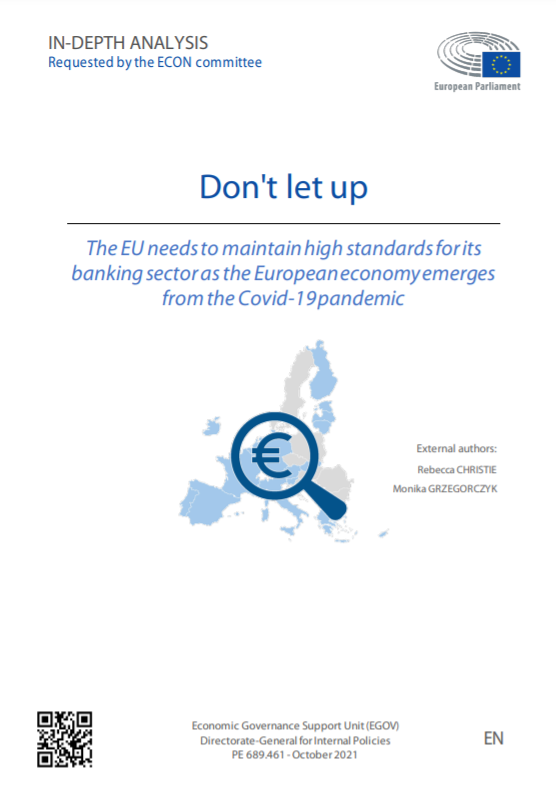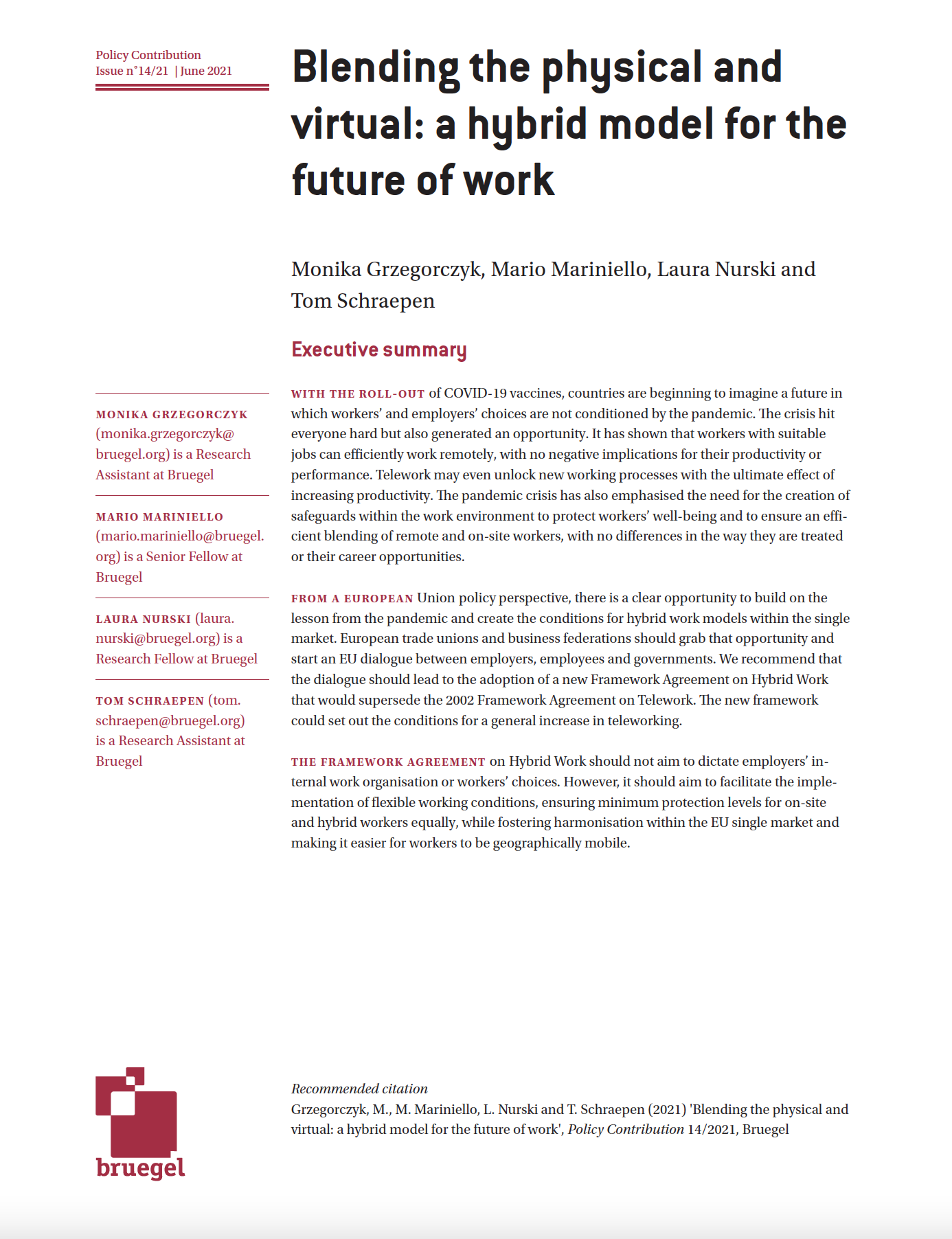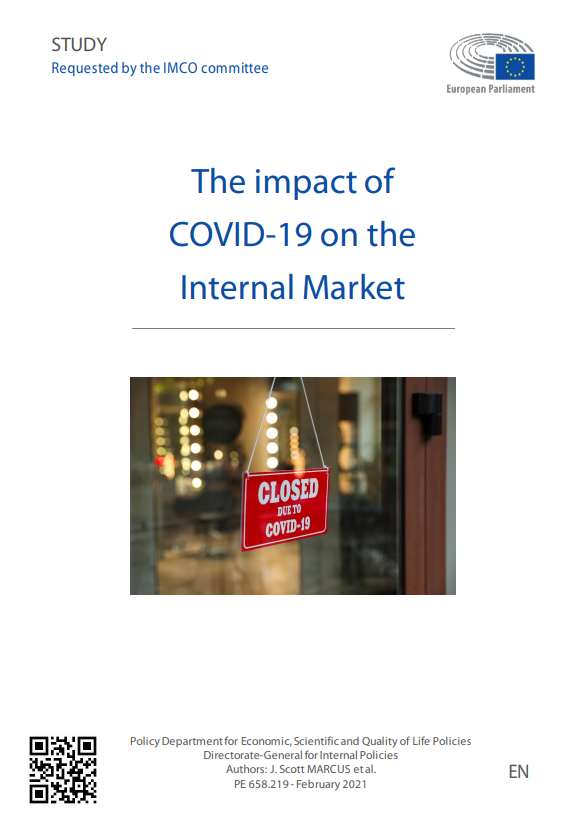Research assistants & interns

Monika Grzegorczyk
Research Analyst
Monika works at Bruegel as a Research Analyst. Monika is completing her second master’s degree in Models and Methods of Quantitative Economics at Paris 1 Pantheon Sorbonne and UCLouvain. She holds a BSc in finance and a MA in Political Science. Her research interests include monetary policy, financial regulations, and structural reforms.
Prior to Bruegel, Monika worked as a Junior Economist at OECD on the qualitative and quantitative assessment of the implementation of structural policies and recommended actions. She was able to apply new machine learning methods such as Natural Language Processing for textual analysis.
Monika was a trainee at governmental bodies (the Polish Finance Ministry, Ministry of the Interior and Administration, and the Polish delegation to OECD) and worked for non-governmental organisation (Foundation Institute for Strategic Studies). She also gained her experience through research assistance at the Paris School of Economics on Macroeconomic imbalances procedure (published as European Parliament Study).












